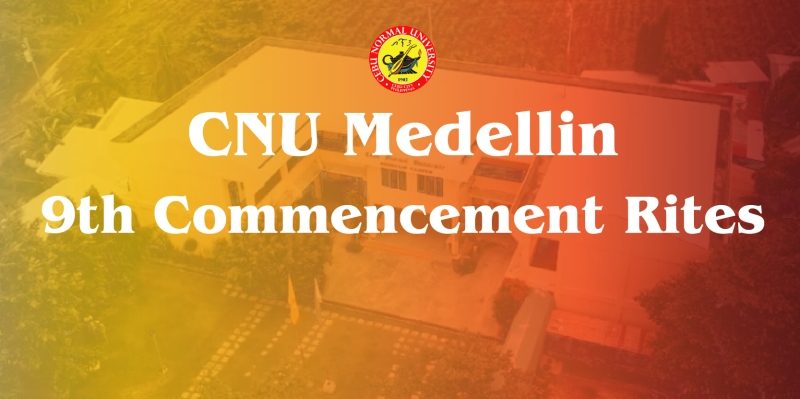“Graduation is more than walking across the stage to collect a diploma. It marks the beginning of the next phase of your life which is something worth celebrating even in this difficult time.” This is what Dr. Kong Hwan Kim, Professor Emeritus of Ajou University, South Korea said as the Commencement Speaker of the 9th continue reading : CNU Medellin virtual commencement rites: A new beginning amid difficult times
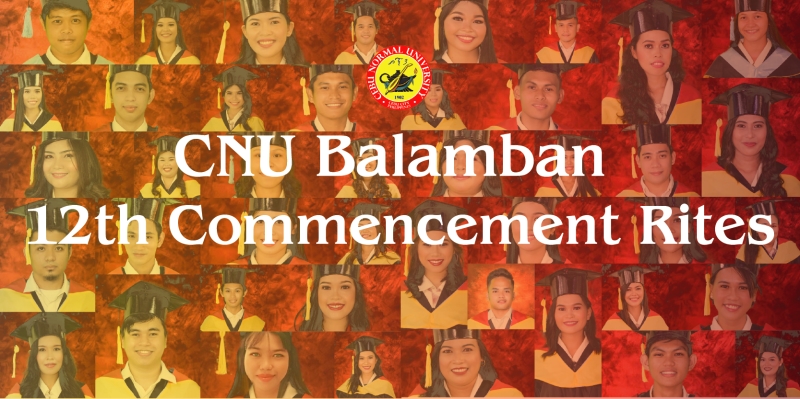
CNU Balamban slays first virtual graduation ceremony
“Your graduation while virtual is no less real and your achievement, no less monumental. In fact, it is a testament to your collective resilience and this institutions’ ability to quickly adapt to changing realities.” This is what Deputy Speaker and Congressman Pablo John Garcia said when he gave his message on the 12th Commencement Rites continue reading : CNU Balamban slays first virtual graduation ceremony
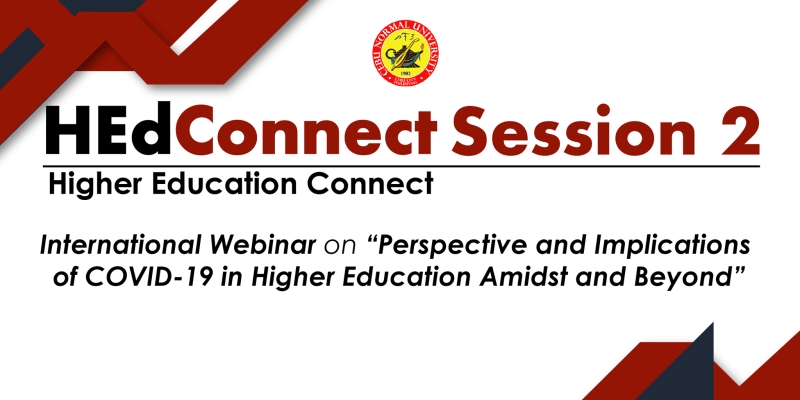
HEdConnect Session 2 reflects on pandemic and society
Multiple ideas ranging from societal, psychological, and cultural dimensions in connection to Coronavirus Disease 2019 (COVID-19) pandemic were highlighted during the conduct of Cebu Normal University (CNU)’s Higher Education Connect (HEdConnect) Session 2. Read related article: [HEdConnect gathers education leaders to discuss the ‘new normal’ in higher ed] The discussion of the said international webinar dwelt continue reading : HEdConnect Session 2 reflects on pandemic and society
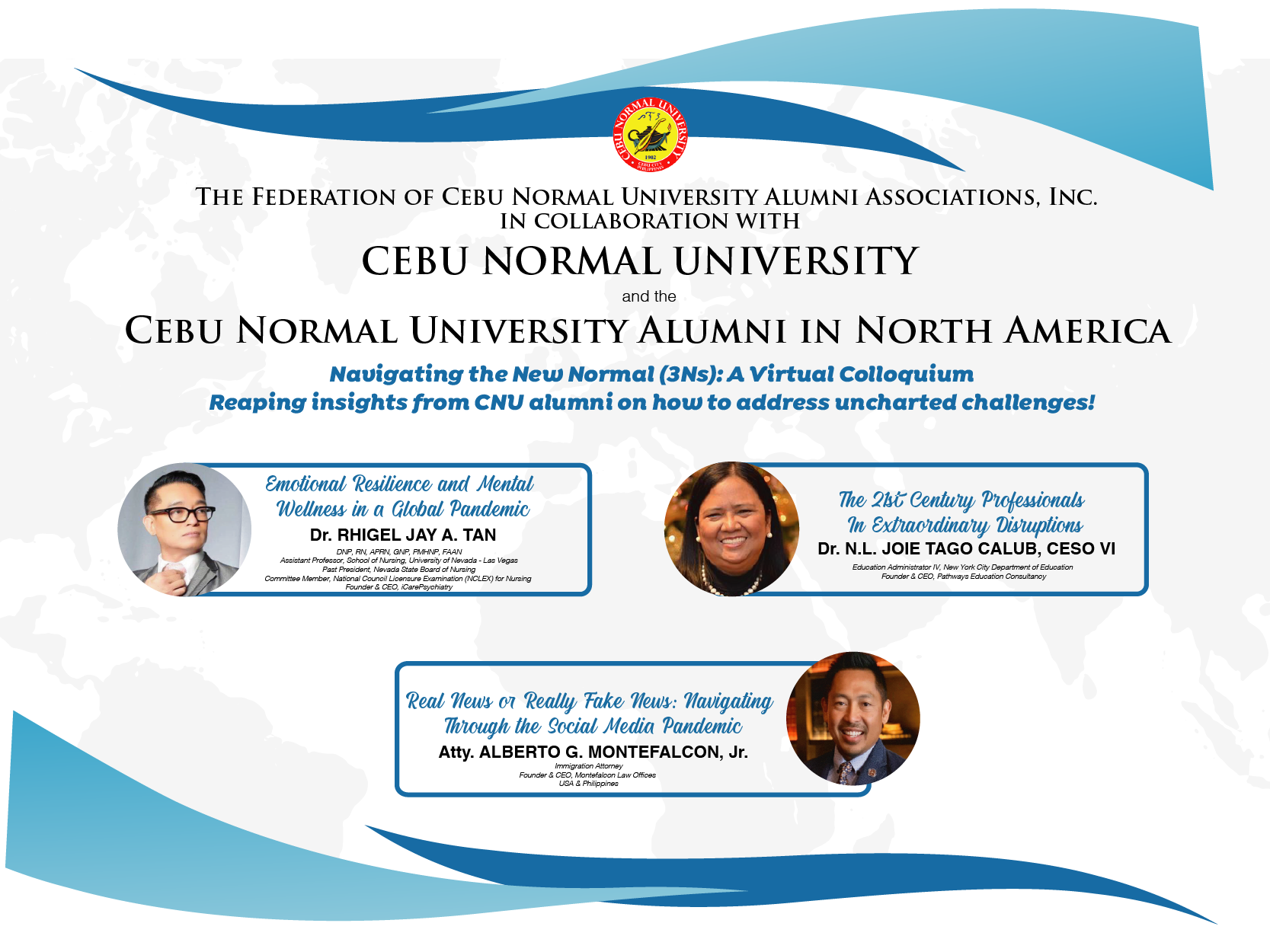
CNU alumni share insights on navigating the new normal
Insights on how to address uncharted challenges brought by the new normal were discussed by three Cebu Normal University (CNU) alumni in North America through a webinar on three distinct topics of their expertise. The session was called Navigating the New Normal (3Ns): A Virtual Colloquium which was live-streamed in the CNU Facebook page last continue reading : CNU alumni share insights on navigating the new normal
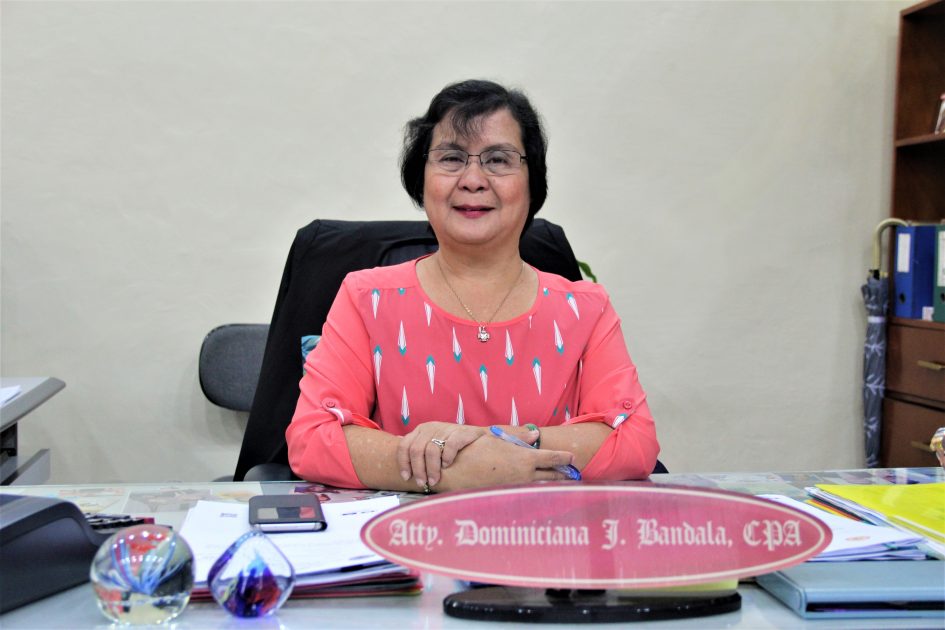
Longest-serving loyalty awardee retires with good goodbyes
“Thank you to all the people who have touched my life. You have made a mark in my heart.” This is what Atty. Dominiciana J. Bandala, Cebu Normal University (CNU) Vice President for Administration and Chief Administrative Officer-Administration said as part of her parting message as a retiree after serving in the University for 41 continue reading : Longest-serving loyalty awardee retires with good goodbyes
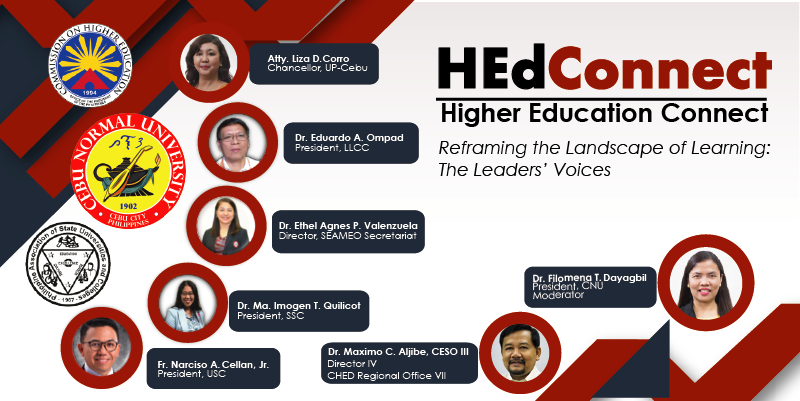
HEdConnect gathers education leaders to discuss the ‘new normal’ in higher ed
Cebu Normal University (CNU) successfully convened education leaders across different institutions in a virtual platform to share experiences and discuss ways to overcome challenges in the higher education sector brought by Coronavirus Disease (COVID-19). This platform was called Higher Education Connect (HEdConnect). The first session of HEdConnect was live-streamed last Tuesday, June 30 at the continue reading : HEdConnect gathers education leaders to discuss the ‘new normal’ in higher ed
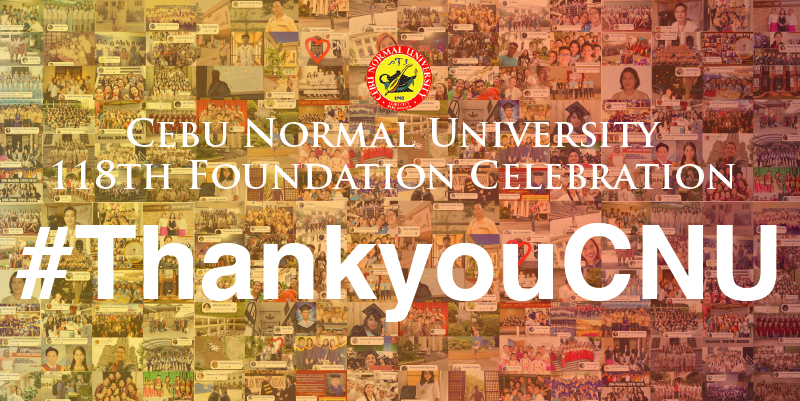
#ThankyouCNU: A tapestry of blissful memories
Cebu Normal University (CNU) celebrated its 118th founding anniversary and 22nd anniversary as a University, and as a way for its stakeholders to express their gratitude, they participated in the photo-posting activity dubbed as, #ThankyouCNU. #ThankyouCNU was launched during the opening salvo of the two-week foundation anniversary celebration last June 15. CNU alumni, students, teachers, employees, continue reading : #ThankyouCNU: A tapestry of blissful memories
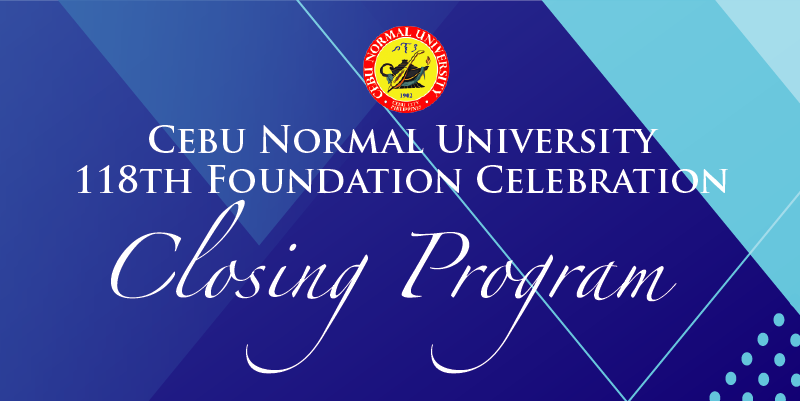
CNU nails its virtual foundation celebration closing
Cebu Normal University (CNU) culminated remotely its 118th foundation celebration and 22nd anniversary as a University upholding that it continues to thrive, lead, and serve despite the ongoing health crisis brought by Coronavirus Disease 2019 (COVID-19). The Culminating Program of the 118th founding anniversary of CNU with the theme, Thriving, Leading, and Serving in the New continue reading : CNU nails its virtual foundation celebration closing
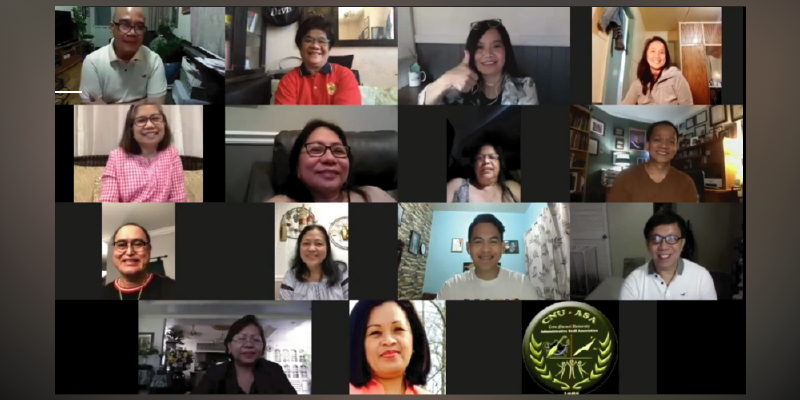
Former CNU educators embody the ‘Normalite’ excellence
Former Cebu Normal University (CNU) faculty members from across the globe shared their experiences and how they adapted to the new normal as they gathered virtually (for the first time in so many years) to commemorate the 118th founding anniversary of the institution. A session called CNU Family Interaction featuring the former educators of CNU who are continue reading : Former CNU educators embody the ‘Normalite’ excellence
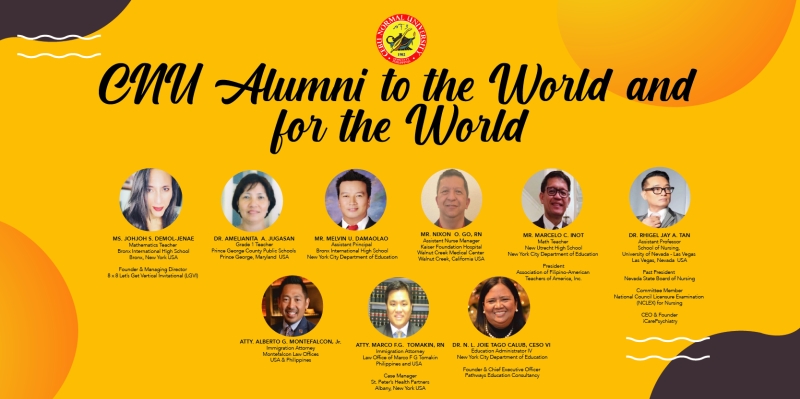
CNU Alumni to the world: Testimonials of excellence
Crimson and gold, which signify excellence, inevitably become part of every Normalite’s identity after they graduate from Cebu Normal University (CNU). This is proven true yet again as some CNU alumni who have already conquered various corners of the globe gave their testament on how they took excellence with them through the talk, CNU Alumni to continue reading : CNU Alumni to the world: Testimonials of excellence

